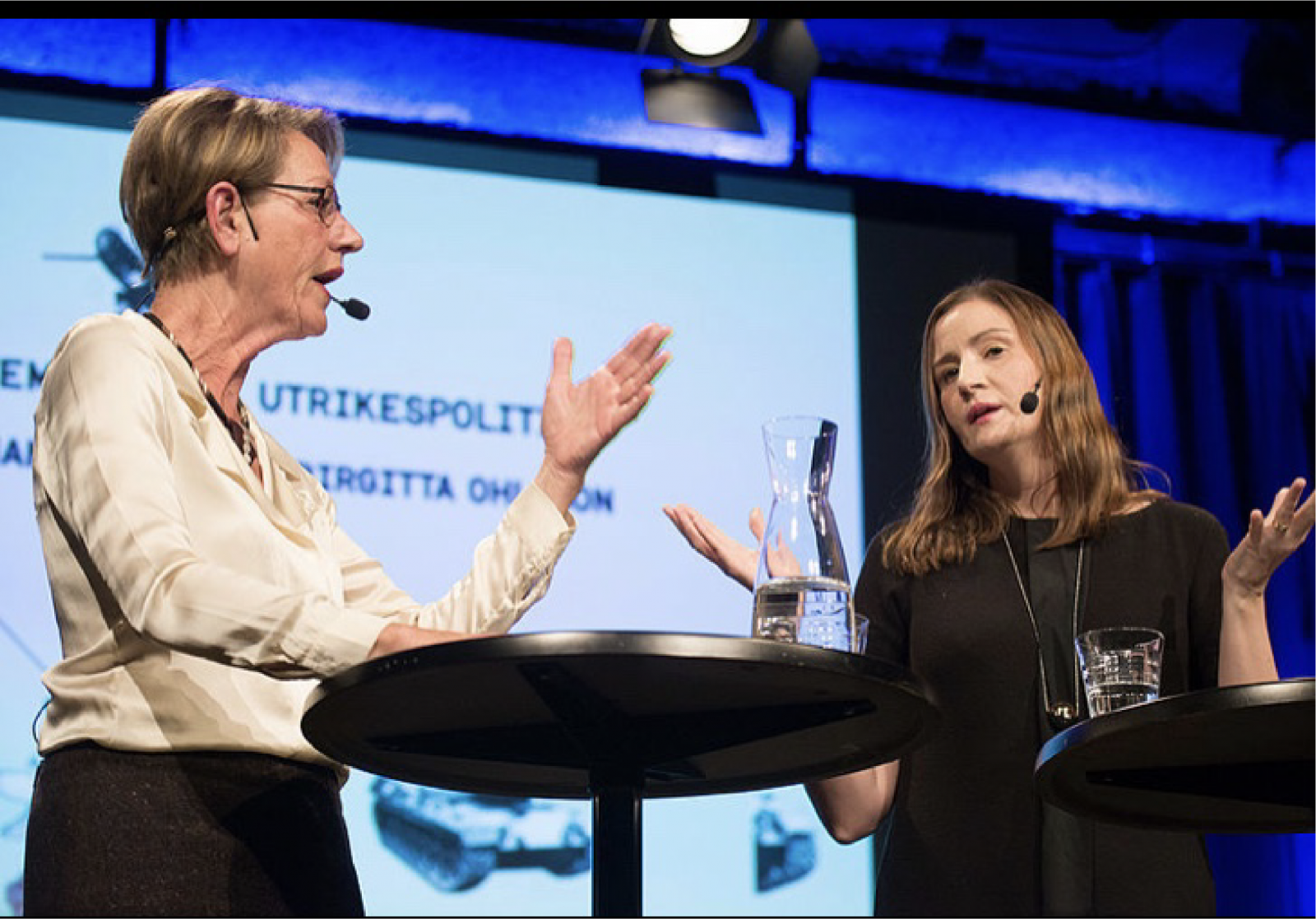
SHARE
ISSUES
His Excellency. His Majesty King. His Highness.
So it went on. Heads of State. Mr. and His, but no Her or Ms.
Antonio, Volkan, Jair, Donald, Recep, Xi, Sebastian, Miguel, Vladimir, Abdullah, Moon, Tamim, Rodrigo, Hassan, Emmanuel, Iván, Gurbanguly, Abdel, Emomali, Andrés, Luis, Danny, Paul, João, Alberto, Egils, Gitanas, Muhammadu, Carlos, Gotabaya, Joko, Martin, Félix, Šefik, Shavkat, János, Kassym-Jomart, Salman, Stevo, Nana Addo, Filipe, Barham, Sauli, Sooronbai, Tommy, Igor, Abdelmadjid, Juan, Michel.
The face of politics was the face of a man when the 75th session of the General Assembly of the United Nations opened its general debate. It took 50 speakers until the first Her Excellency was presented, Zuzana Čaputová, President of Slovakia. Out of the 193 member states at the UN, only 21 countries have a female head of state or government.
Today, the UN General Assembly will host a special session to celebrate and review the 25th anniversary of the Beijing Women’s Conference and Platform for Action. Before the COVID-19 pandemic hit, this 25th anniversary year was set to launch the goal of accelerating the pace of change towards gender equality by 2030 - the end of the Sustainable Development Goals framework. It was always urgent, but both the public health responses and the political environment of COVID-19 has set women's empowerment back decades, making women's rights a critical democratic issue. A cross-sectoral examination of the metrics of empowerment by the World Economic Forum, revealed that at 70% the gender gap on the political empowerment of women relative to men is the widest and in some places increasing, making this area urgent for democracy.
Earlier this year, NDI committed to contributing to the global goal of political parity by 2030, by launching its Changing the Face of Politics campaign. This campaign aims to introduce and sustain the political activity of more women, young women, women from marginalized groups, as disabled, racial, ethnic minorities, and the LGBTI movement. We need a sea change from 75% of all elected parliamentarians being male, and 65% of them being over the age of 50. In 2019, there was at least one parliament where there were more men over 70 years of age than women. The fact is that women are at least 50% of every demographic, if you break the space open for women; other marginalized groups will break through.
Today, NDI is launching a podcast series of the same name, Changing the Face of Politics. This series will bring together an intergenerational, multi-sectoral, and multinational array of established and emerging women activists and politicians. They will discuss their experiences of leadership, and reflect on how the campaign can protect and promote women’s political empowerment. Instead of a single host, the series will be built on a “daisy chain” model, whereby each person is first a guest, and then an interviewer.
Hillary Clinton pushed the envelope on behalf of women and girls at the Beijing Women’s Conference in 1995, in which she boldly stated, “Women’s rights are human rights.” And in these past 25 years, we have made some feminist progress. We´ve almost closed the global gender gap in primary-school enrollment, and young women like Vanessa Nakate, Malala Yousafzai, and Greta Thunberg are the trailblazers paving the way for the bold ideas of the future.
In the first episode, I had the privilege of interviewing the trailblazing Vanessa Nakate, a young climate change activist from Uganda. I felt elated by hope after my conversation with Vanessa. But hope is not enough, we must act. And that is what we are fighting for every day at NDI, to change the face of politics.
Birgitta Ohlsson,
Director Political Parties, National Democratic Institute (NDI)
Former Minister and Member of Parliament, Sweden.


